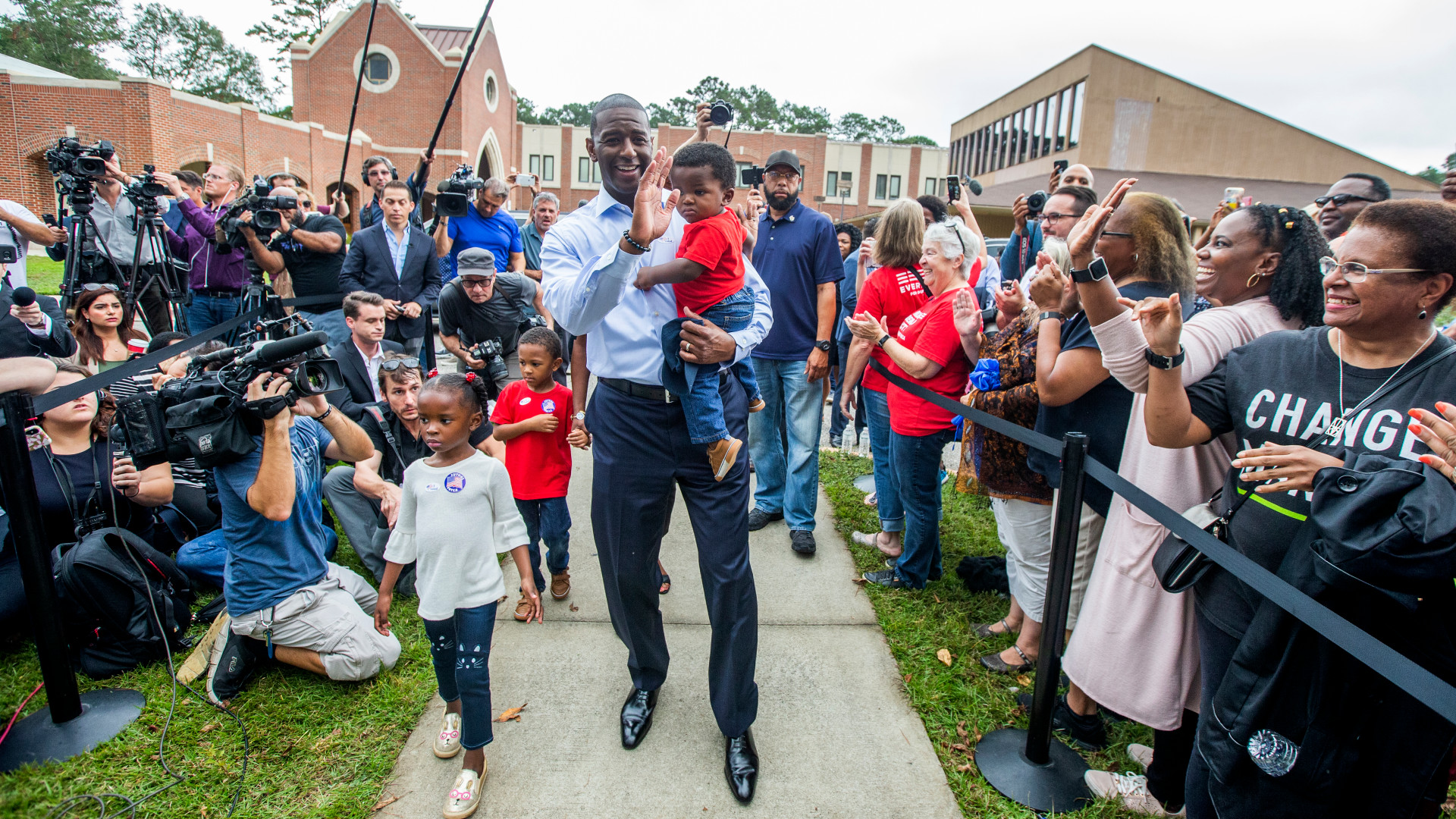In an effort to flip the Sunshine State in 2020, former Florida gubernatorial candidate Andrew Gillum (D) is launching a voter registration group, according to news reports on Wednesday.
Gillum, who narrowly lost his 2018 gubernatorial bid against Republican Ron DeSantis, has been touting a “big announcement,” sparking speculation about whether he would enter the crowded 2020 Democratic primary.
But Politico first reported that the former Tallahassee mayor will formally announce his new voter registration effort in Miami Gardens, Florida, Wednesday afternoon.
3.20.19 | Miami, Florida | https://t.co/WjeSoEEkjr pic.twitter.com/INXSsbMGMx
— Andrew Gillum (@AndrewGillum) March 8, 2019
Last week, according to the Politico report, “Bring it Home Florida,” a group named after Gillum’s campaign motto, was registered by his supporters with the election division overseeing voter registration efforts.
Gillum has previously hinted at his intentions, saying in January, “In this period of time, whatever resources that I raise and time and energy I spend in this state is going to be around voter registration and deep-level engagement, so that when we have a nominee, we have an apparatus we can turn on.”
Registering more voters could be the Democratic party’s ticket to success in the swing state, as Democratic political consultant Steve Schale wrote on his blog earlier this week.
According to Schale, over the last ten years, Democrats have seen their voter registration advantage drop by 400,000 voters. As Schale outlined, in 2018, Gillum lost by just over 30,000 votes, and Sen. Bill Nelson (D-FL) lost his reelection by about 10,000 votes.
“Yes, the laws make it hard to register voters. Yes, the purges disproportionally impact Democratic voters. Yes, registering voters is difficult, time consuming, and tedious work,” Schale wrote. “But nothing is easy.”
Gillum’s voter registration efforts come as Florida wrestles with how to implement Amendment 4, the voter-approved ballot measure that restored voting rights to more than 1 million people in the state with felony convictions.
The measure was officially implemented in January, and has already begun to reshape Florida’s electorate, as The Tampa Bay Times reported last month: New voters who registered ahead of the city’s March 5 mayoral election were older, blacker, and more Democratic.
But this week, a Florida House committee passed a measure that would require people re-enfranchised under Amendment 4 to pay back all court fees and costs in order to vote, even if those costs were not part of their sentence.
“What the barriers proposed in this bill do is nearly guarantee that people will miss election after election… because they cannot afford to pay financial obligations,” Julie Ebenstein, a voting rights attorney at the American Civil Liberties Union, told NBC News. “It’s an affront to the Florida voters.”
Florida, which has a long history of voter intimidation and suppression, saw a large number of discarded absentee ballots and provisional ballots because of alleged signature mismatches.
The election this year was also beset by a racially motivated attempts to frighten and confuse voters, including a rash of fake robocall purporting to be from Gillum, but which ultimately was traced to an Idaho-based white supremacist website.


